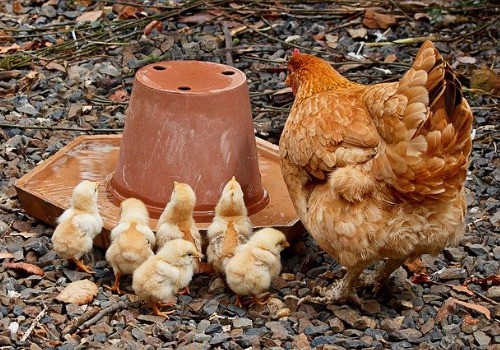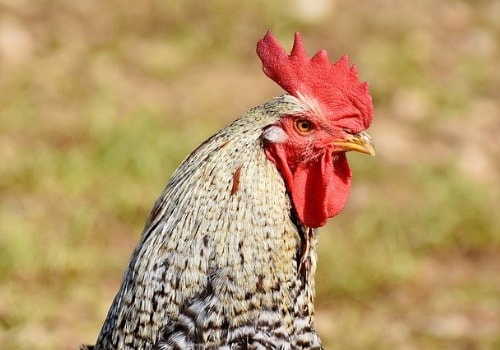Keeping your chickens in optimal temperatures is crucial for sustainable egg production and better livelihood. Here are a few simple tips to ensure that your chicken is well-tempered.
How to Keep Chickens Cool?
Ice Their Water

Icing their water is perhaps the most effective way to ensure that your chickens don’t overheat in extreme conditions. Be sure to place their drinking containers away from the sun or any light that could heat it.
[amazon bestseller=”automatic water for chickens”]
Keep Your Coop Well Ventilated
When dealing with the brisk of winter, it is wise to ensure that your chickens can withstand the cold. Their coating should do most of the work but securing a mesh vent will help prevent harsh drafts. Make sure to seal up any air leaks throughout the coop, as well as testing the humidity. This will give you an insight into how well the chickens are being kept.
Use the ‘Deep Litter Method’
This method will prove worthy to those hoping to keep their chickens warm using a practical insulation arrangement. Simply layer pine shavings or similar organic matter over the floor and begin letting your chickens accumulate waste matter. Instead of cleaning up after them, rake up the bedding and allow the natural movement of your flock to do the rest.
If you regularly supply the coop with pine shavings, their litter will eventually provide both insulation and healthy microbes to settle in. A simple yet effective method that will ensure your chickens with the proper liveability.
How Hot Is Too Hot for Chickens?
When considering how hot is too hot for chickens, it boils down (no pun intended) what kind of breed they are. Different breeds are adaptable to different climates, as with any other living creature. Your average chicken can withstand temperatures up to 90 and 100 degrees Fahrenheit, but only for short periods of time. They ideally reside in temperatures between 40 and 80 degrees Fahrenheit, and some breeds can exceed those thresholds.
As chickens age, they naturally lose their temperature hardiness which is why it’s extremely important that older ones are kept cool during the hottest parts of the year. Overall, if your chicken is healthy, they should be able to maintain the body temperature with no fret. Overheating does in fact occur, so I’ll provide you with a list that presents symptoms and signs during an attack.
- Lethergy
- Excessive panting
- Wings extended from body
- Loss of appetite
- Diarrhea/Irregular/Runny droppings

Do Chickens Need a Heat Lamp?
A heat lamp would be a smart-call to anyone worrying about their chicken’s survivability. Chickens don’t typically need a heat lamp due to their coating of feathers, but if the climate you’re living in is extreme, then perhaps a heat lamp would prove worthy.
During the winter, caretakers of chickens become worried about their flock’s comfort level – which makes sense. But, if you have to remember that our comfort level is drastically different than that of the fowl. Chickens are anatomically very distinctive from people and have unique traits that allow them to regulate their body temperatures (1). Below, I’ll list several insights that will keep you cognizant when contemplating whether or not to invest in a heat lamp.
[amazon bestseller=”chicken heater for coop”]
- Make sure to provide sufficient amounts of water
- Reassure that drafts are kept sealed for extra protection
- By all means, never use a heat lamp inside a coop




